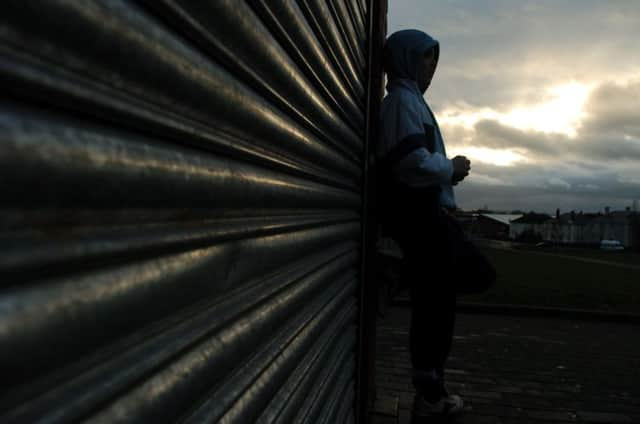More than 30,000 people reported missing in Scotland each year


Police Scotland receives more than 30,000 calls reporting people missing each year, around two-thirds of which concern children or young people. Of those, one in six who are missing overnight will sleep rough or with strangers.
The vast majority of those who do vanish - 88 per cent - are either contacted or returned home within 48 hours.
Advertisement
Hide AdAdvertisement
Hide AdBut for others the outcome is not so positive - there are more than 500 cases in Scotland who are classed as long-term missing, which means they have not been seen for 28 days or more.
The new framework, which has been drafted by police, local authorities and third sector organisations, aims to adopt a consistent approach to dealing with missing people.
“We must be able to understand and deal with the issues that lie behind individual case, and while Scotland already has the right set of policies in place as well as a wealth of good practice, we need a consistent and coherent multi-agency response. The National Missing Persons Framework for Scotland will ensure such a response is in place and is founded on a close collaboration between the Scottish Government, Police Scotland, local authorities, NHS Scotland and a number of third sector organisations.
“The framework focuses on preventing people from going missing in the first place and on limiting the harm associated with these episodes, and sets out the roles and responsibilities of each agency.
“I believe that this is a major step forward in our efforts to protect some of Scotland’s most vulnerable individuals and ensure that the families and loved ones left behind are supported.”
The need for a unified approach stems from the increasing number of reports received by the authorities.
In 2015/16, Police Scotland received 40,070 calls regarding missing persons - more than 100 each day.
The network also aims to reduce the number of people who are reported missing on multiple times - almost one in two missing people have gone missing on one or more previous occasions.
Advertisement
Hide AdAdvertisement
Hide AdExperts insists the decision to go missing is not one that people take lightly and is often an act of last resort linked to abuse, distress or desperation.
“Runaway and missing children and young people put themselves at considerable risk and are a prime target for sexual predators,” said Barnardo’s Scotland director Martin Crewe.
“They are also much more likely to suffer physical abuse, become a victim of crime or get involved with drink or drug abuse.
“For those who are identified as at risk of going missing, we must recognise that there are reasons for their actions and not assume that a child going missing is just being difficult.
“Introducing preventative measures such as return home interviews can be a great help in understanding the reasons why the child or young person ran away and assist them to understand the risks leading to fewer episodes of running away.”
Assistant Chief Constable Mark Williams said: “Police Scotland deals with over 20,000 missing person investigations every year.
“Thankfully, over 99 per cent of people are found safely but it highlights the scale of the challenge society faces.
“That’s why it is so important that we work together to better understand the complex reasons why people go missing in the first place.